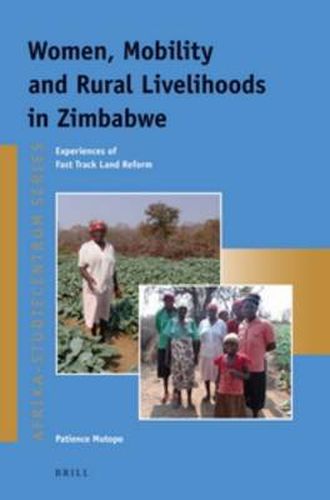Readings Newsletter
Become a Readings Member to make your shopping experience even easier.
Sign in or sign up for free!
You’re not far away from qualifying for FREE standard shipping within Australia
You’ve qualified for FREE standard shipping within Australia
The cart is loading…






This book is based on iterative multi-sited ethnography at Merrivale farm, Tavaka village, and various sites in South Africa. The author reveals how the dynamics generated by fast-track potentially offer new development opportunities - specifically for women. The findings challenge existing expert notions and opinions about women’s rural land use, livelihoods, and rural development. The book examines how negotiations and bargaining by women with family, state, and traditional actors have proved useful in accessing land in Mwenezi district, Zimbabwe. The hidden, complex, and innovative ways adopted by women to access land and shape livelihoods based on transitory mobility are examined. The role of collective action, conflicts, conflict resolution, and women’s agency in overcoming the challenges associated with trading in South Africa are examined within the ambit of the sustainable livelihoods framework, a gendered approach to land reform and social networks analysis.
$9.00 standard shipping within Australia
FREE standard shipping within Australia for orders over $100.00
Express & International shipping calculated at checkout
This book is based on iterative multi-sited ethnography at Merrivale farm, Tavaka village, and various sites in South Africa. The author reveals how the dynamics generated by fast-track potentially offer new development opportunities - specifically for women. The findings challenge existing expert notions and opinions about women’s rural land use, livelihoods, and rural development. The book examines how negotiations and bargaining by women with family, state, and traditional actors have proved useful in accessing land in Mwenezi district, Zimbabwe. The hidden, complex, and innovative ways adopted by women to access land and shape livelihoods based on transitory mobility are examined. The role of collective action, conflicts, conflict resolution, and women’s agency in overcoming the challenges associated with trading in South Africa are examined within the ambit of the sustainable livelihoods framework, a gendered approach to land reform and social networks analysis.